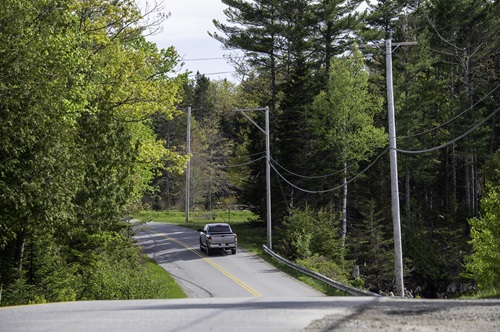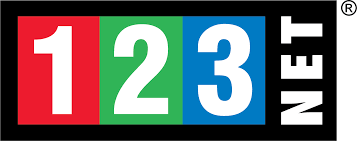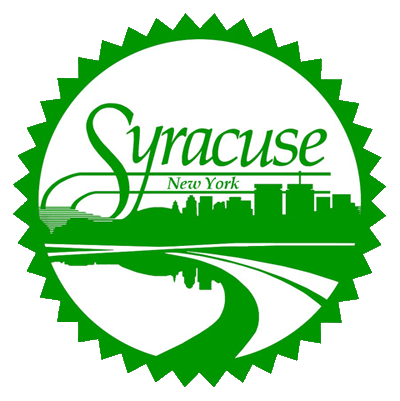
Fast, affordable Internet access for all.

Alabama has announced the release of $148.3 million in new broadband grants via the state’s Capital Projects Fund (CPF), made possible by the 2021 American Rescue Plan Act (ARPA). While regional monopolies like Charter nabbed the lion’s share of state funding (once again), cooperatives also secured significant funding to tackle the rural digital divide.
“High-speed internet service continues to strengthen and expand across the state, and we are taking the necessary strides on this journey to achieve full broadband access for Alabama,” Alabama Governor Kay Ivey said in a prepared statement. “This has been a monumental task, but it is one that will pay multiple dividends for our state and its residents. Today is an exciting day as we announce these latest projects.”
Cable giant Charter Communications (Spectrum) was the biggest winner of state funds, awarded 23 grants totaling $44.8 million to shore up access to 22,000 underserved homes across 25 Alabama counties. The next biggest award recipient was Mediacom, which received $22.8 million in grants to fund deployment to 8,000 homes across six Alabama counties.

All told, 16 providers were awarded grants to expand access to 48 different Alabama counties. While regional monopolies were heavily represented in the awards, four different Alabama cooperatives received $34.8 million in grant funding to expand fiber access to more than 11,092 rural Alabama homes and businesses.
Peppered by winding country roads and remote islands, Maine exemplifies the challenges in even deployment of affordable broadband. But thanks to tenacious island communities and forward-thinking state leadership, a growing roster of community-owned broadband networks are leading the charge toward affordable access in the Pine Tree State.
Peggy Schaffer, former executive director of the state of Maine's broadband mapping and expansion effort, ConnectMaine, has played a starring role in shoring up Maine’s broadband mapping data after years of federal dysfunction.
Schaffer’s well versed in the broad array of challenges faced by remote Maine communities, and says she’s long been impressed by the “scrappy” nature of Maine’s community-owned island deployments, which have faced down and overcome no limit of onerous challenges in an ongoing quest to finally bridge the state’s long standing digital divide.
Maine is currently ranked 49th in the U.S. in terms of resident access to gigabit-capable broadband service. Like so much of the country, the state is heavily dominated by regional monopolies that failed to uniformly deliver affordable, next-generation broadband, despite decades of federal subsidies, regulatory favors, and tax breaks.
Now local Maine communities are taking matters into their own hands, beginning with long-neglected island residents no stranger to unique logistical challenges.

‘It’s A Story Of Perseverance’
A looming new bill by Republican Kentucky State Senator Gex Williams could undermine decades of broadband progress made in the state’s capital city by a popular locally-owned utility, Frankfort Plant Board (FPB).
Home to 28,000 Kentuckians, local residents and utility officials in Frankfort are incensed at the bill, which they believe will unnecessarily result in higher rates, fewer jobs, and less broadband competition overall.
Williams is circulating a bill in the Kentucky state legislature that, if passed, would force FPB to sell its broadband division to a private-sector company and subject it to more stringent oversight requirements. In guest editorials circulated in the local press, Williams insists his goal is to “rein in” the FPB, which he deems part of a “runaway” government that lacks accountability.
But there’s no evidence for Williams’ allegations of limited accountability, and locals and activists alike believe that the legislator is simply running interference for regional broadband monopolies upset by the added competition created by the popular, publicly-owned utility.
Another Community-Owned Solution Addressing Market Failure
Like many local U.S. communities, Frankfort sees a notable dearth of meaningful broadband competition, resulting in patchy broadband coverage, slow speeds, high prices, and abysmal customer service. Enter the Frankfort Plant Board, which has been deploying affordable fiber access across the community under the NEXTBAND brand.
A plan in Jamestown, New York to deploy affordable fiber to every last city resident has received welcome support from state leaders, even though deployment details remain murky and network construction remains well over the horizon.
In 2021, Jamestown officials told ILSR they were working with Entrypoint Networks on a $25 million fiber network for the city of 28,000. The city hopes to deliver fiber in conjunction with the Jamestown Board of Public Utilities, leaning heavily on the federal Affordable Connectivity Program (ACP) to ensure low cost access to marginalized and low income communities.

The city’s plans got a needed attention boost last month when Empire State Development – tasked with boosting economic development across New York State – gave a nod to Jamestown’s efforts in the organization’s five-year development plan.
The plan, among other things, will shape how the state utilizes $664 million in federal subsidies made possible by the Broadband Equity Access and Deployment (BEAD) Program and the 2021 infrastructure bill. While Jamestown may qualify for BEAD funding, how much the city’s project could receive remains undetermined.
Syracuse officials have launched a new wireless community broadband network they hope will help bring affordable broadband access to the city of 145,000.
Dubbed Surge Link, the effort is backed by more than $3.5 million in federal funding and aims to deliver free broadband access to the city’s lowest income neighborhoods.
Motivated by peak pandemic connectivity headaches, Syracuse put out a request for proposal (RFP) late last year. The city then hired US Ignite as an advisor, and selected Geneva-based Community Broadband Networks (no relation to our program here at ILSR) to build a fixed wireless network capable of delivering discounted access starting with 2,500 underserved Syracuse households.
City officials tell ILSR the network is using Fixed Wireless Access technology, specifically Citizens Broadband Radio Service (CBRS), which is an emerging technology a growing number of municipalities and other nonprofit community groups have been experimenting with as a way to bring broadband to unserved and underserved residents in dense settings. And while CBRS has promise, as US Ignite notes, “because the technology is relatively new, the hardware and software associated with CBRS networks is also new. Vendors may still be working out the kinks in their solutions, particularly if those solutions are being used in novel ways, or need to interface with other older systems.”
It should also be noted that another New York community (Westchester County) embraced CBRS, only to find that it could not deliver the capacity they wanted to many people who needed the service.
Allegan County, Michigan will soon receive a $30 million state grant to finalize the deployment of a new open access, carrier-neutral fiber network. The end result will bring overdue competition – and affordable multi-gigabit fiber access – to long neglected communities by 2025.
The $30 million award is part of Michigan’s $238 million Realizing Opportunity with Broadband Infrastructure Networks (ROBIN) grant program, made possible by 2021’s American Rescue Plan Act (ARPA) and the resulting Capital Projects Fund.
123NET was chosen by Allegan County in late 2021 to help spearhead the Allegan County Broadband Project. The public-private partnership will bring access to more than 10,000 Allegan County residents either underserved or completely unserved by regional telecom giants, spread out across 1,000 square miles.
123NET and Allegan County had already committed to contributing $17.5 million for the construction of the network, with the county’s share coming from earlier ARPA awards.

"We are pleased to be selected as a recipient of the Michigan ROBIN Grant Funding. This recognition validates the hard work and dedication that both we and Allegan County have put into this Project,” Dan Irvin, CEO of 123NET said of the award. “We look forward to partnering with additional communities throughout Michigan in a combined effort to make this state the best connected on the planet."
City officials in Syracuse, New York have formally approved a new project to provide heavily discounted wireless broadband to low-income city residents. The plan is being made possible courtesy of the $1.9 trillion American Rescue Plan Act (ARPA), $123 million of which has been doled out to Syracuse city leaders for various urban improvement efforts.
After issuing a request for proposals (RFP) last year, Syracuse officials say they’ve selected Community Broadband Networks FLX to help build the fledgling, city-owned network. City officials say the finished project, which is estimated to be completed by the end of the summer, should cover 10 Census tracts in the south, southwest and west sides of the city for a total project cost of somewhere around $3.5 million.
Once completed, the network should provide wireless broadband service at speeds up to 100 megabits per second (Mbps) to roughly 2,500 Syracuse residents currently living below the poverty line in a city of 146,000.

On Monday, March 27 the Syracuse Common Council voted to formally approve the project, which will utilize fixed wireless technology in a bid to reduce overall project costs. Participating users will be given a free router and modem, which in turn will connect to city transmitters affixed to local city-owned buildings and utility poles.
Florida’s state broadband office is doling out $144 million in grants to 58 different broadband expansion projects across 41 Florida counties.
The funding is being delivered courtesy of Florida’s Broadband Opportunity Grant Program, itself made possible by federal legislation—the American Rescue Plan Act (ARPA)— that many Florida lawmakers opposed.
The full breakdown of the deployments make it clear that, similarly to what we’ve seen in states like Montana, the lion’s share of state funding will be going to regional cable monopolies.
Roughly $89 million of Florida’s $144 million grant award will be going to the state’s three largest cable broadband providers: Cox, Comcast, and Charter. Comcast obtained $45 million, Charter was awarded approximately $28 million, and Cox was awarded $16 million. A more detailed breakdown of the awards obtained by Telecompetitor indicates that the vast majority of the projects are partnerships with cable giants.
In 2020, New York City officials unveiled a massive new broadband proposal they promised would dramatically reshape affordable broadband access in the city.
Instead, the program has been steadily and quietly dismantled, replaced by a variety of costly half-measures that critics say don’t solve the actual, underlying cause of expensive, substandard broadband.
The New York City Internet Master Plan was ambitious. The plan featured a pilot program designed to bring affordable broadband to 45,000 residents of New York City Housing Authority (NYCHA) buildings, a major streamlining of broadband deployment bureaucracy, and several initiatives prioritizing subscriber privacy and choice.
At the heart of the proposal was a plan to spend $156 million to create citywide fiber and wireless open access networks in underserved portions of the city that would be open to all competitors. The plan specifically targeted the most underserved parts of the city, given officials estimated it would cost $2.1 billion to deploy such a network city wide.
“The private market has failed to deliver the [I]nternet in a way that works for all New Yorkers,” the plan said, pointing out that 29 percent of city households lacked broadband, and 46 percent of families living below the poverty line lacked service due to high prices.
City officials predicted that their plan to boost competition would create 165,000 new jobs, result in a $49 billion increase in personal income, and create up to $142 billion in incremental gross city product by 2045 – all while delivering faster, more affordable broadband to 1.5 million city residents currently without access.
But elections have consequences.
In June of 2022, new New York City Mayor Eric Adams announced that the city would be “pausing” the entire initiative for “re-evaluation.” Insiders familiar with the decision making process say the pause was more of an abrupt cancellation, leaving planners and network built partners high and dry after several years of careful preparation and planning.
While cooperatives, utilities, and municipalities are seeing a welcome portion of Covid relief and infrastructure bill funding, the nation’s two biggest cable broadband monopolies continue to hoover up the lion’s share of most new broadband infrastructure grants.
All told, the American Rescue Plan Act and Infrastructure Investment and Jobs Act will deliver more than $50 billion in new funding for broadband infrastructure. And while cooperatives and utilities have been big winners in states like Tennessee, a recent breakdown by Fierce Telecom of money awarded so far shows that cable monopolies have been the biggest winners by far.